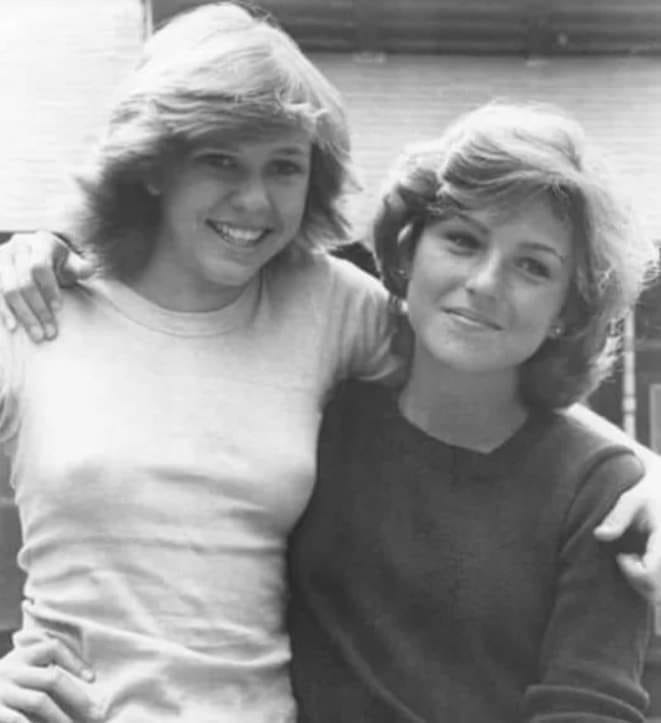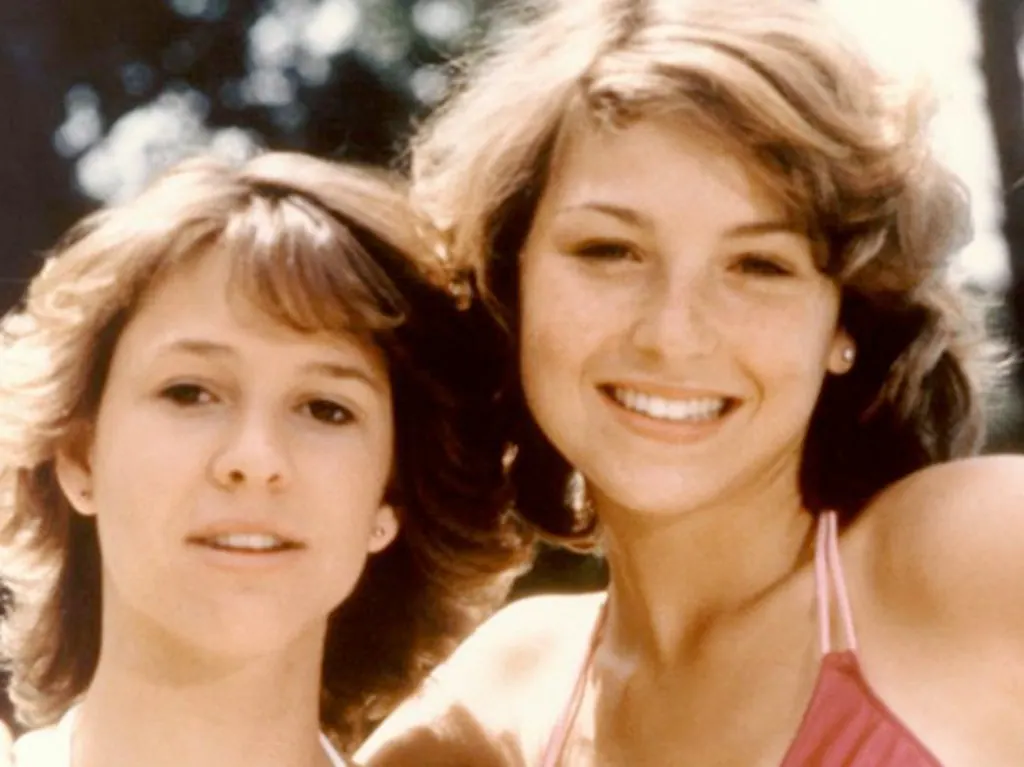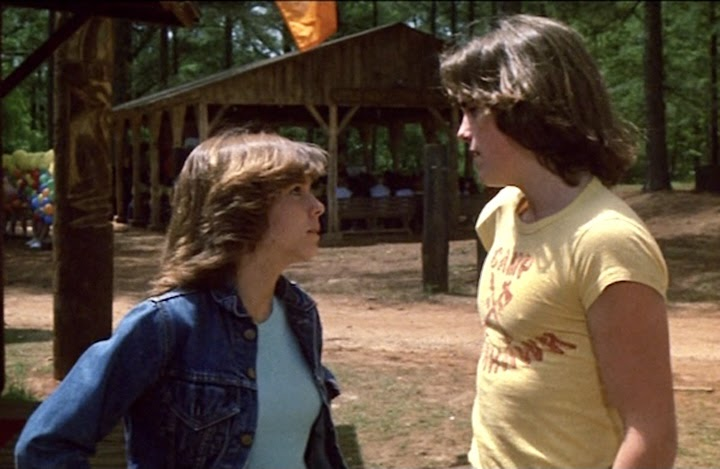Few films from the 1980s tackle the complexity of teenage life with as much sensitivity and insight as Little Darlings. Starring Kristy McNichol and Tatum O’Neal, this coming-of-age dramedy explores the journey of two teenage girls at summer camp who engage in a high-stakes bet: who can lose her virginity first? While the premise may initially suggest a risqué comedy, Little Darlings is anything but shallow. Instead, it delivers a nuanced portrayal of adolescence, friendship, and the realities of growing up.
Let’s dive into what makes this underrated gem a standout in its genre and era.
A Mature Take on a Provocative Premise

When Little Darlings was released in 1980, it stood out from the wave of raucous teen comedies that would dominate the decade. Unlike the bawdy humor of Porky’s (1981) or Fast Times at Ridgemont High (1982), Little Darlings opts for a restrained and thoughtful approach. The film’s narrative focuses on Angel (Kristy McNichol), a street-smart girl from a modest background, and Ferris (Tatum O’Neal), a privileged and sheltered teen. Their bet becomes a vehicle for exploring deeper themes of self-worth, vulnerability, and the societal pressures surrounding female sexuality.
Rather than leaning into gratuitous content, the film’s story unfolds with sensitivity, prioritizing emotional depth over shock value. Its PG-rated restraint is a breath of fresh air compared to its contemporaries.
Kristy McNichol’s Captivating Performance
Kristy McNichol shines as Angel, bringing both toughness and vulnerability to her role. Raised by a single mother in a challenging environment, Angel approaches the idea of sex with a mix of bravado and naivety. McNichol’s performance captures the emotional complexity of a young woman grappling with societal expectations and her own feelings.
In one of the film’s most poignant moments, Angel reflects on her first sexual experience, saying, “God, I feel so lonesome.” This raw confession highlights how her expectations of intimacy clash with reality. McNichol’s nuanced portrayal of Angel’s journey from confidence to confusion is both relatable and deeply moving.
Tatum O’Neal’s Understated Complexity
Tatum O’Neal, who won an Oscar for Paper Moon at just 10 years old, delivers a strong performance as Ferris. While Ferris initially appears to embody the archetype of a wealthy, self-assured teen, O’Neal adds layers to her character, revealing her insecurities and vulnerabilities. Her pursuit of Gary, a much older camp counselor played by Armand Assante, provides a fascinating subplot that underscores the film’s focus on power dynamics and boundaries.
Gary’s gentle rejection of Ferris—“I’m not a prince, I’m a teacher”—is handled with care, emphasizing the importance of responsible adult behavior in such situations. This moment reflects the film’s commitment to addressing its themes with maturity and respect.

A Rare Emphasis on the Female Gaze
One of the most groundbreaking aspects of Little Darlings is its focus on the female gaze. Unlike many teen movies of the era, which objectify women through the male perspective, this film centers the girls’ viewpoints. Whether it’s Angel sneaking glances at Randy’s (Matt Dillon) butt or the campers spying on boys skinny-dipping across the lake, the film flips the script in a way that feels both refreshing and empowering.
Even in intimate scenes, the focus remains on the emotional experiences of the female characters. For instance, during Angel and Randy’s first encounter, the camera lingers on her hesitation and vulnerability rather than sexualizing the moment. This approach allows the film to explore teenage sexuality with authenticity and respect.
A Stellar Supporting Cast
The supporting cast of Little Darlings adds depth and humor to the story, with notable performances from future stars like Cynthia Nixon and Matt Dillon.
Cynthia Nixon’s Hippie Charm
Long before her Sex and the City fame, Cynthia Nixon delivers a standout performance as a quirky camper raised by hippie parents. Her character’s eccentricities—handing out niacin tablets and warning about the dangers of eating meat—add a touch of humor while showcasing the diversity of the camp’s inhabitants.
Matt Dillon’s Early Stardom
In one of his earliest roles, Matt Dillon plays Randy, the boy who captures Angel’s attention. Dillon’s portrayal strikes a balance between cocky charm and genuine vulnerability, particularly in moments when Randy confronts the emotional toll of being treated as a conquest.
Armand Assante’s Gentle Mentor
As Gary, the camp counselor pursued by Ferris, Armand Assante exudes warmth and maturity. His character’s rejection of Ferris is handled with grace, reinforcing the film’s focus on responsible and respectful interactions.

Complex Themes of Adolescence
At its core, Little Darlings is a film about the complexities of adolescence. It tackles themes like peer pressure, self-discovery, and the emotional impact of first sexual experiences with honesty and sensitivity. Both Angel and Ferris learn that intimacy is far more complicated than they initially believed, challenging their preconceived notions and reshaping their understanding of themselves.
The film also addresses broader societal issues, such as the double standards placed on young women and the pressure to conform to unrealistic expectations. By presenting these themes through the lens of two distinct yet relatable characters, Little Darlings resonates with audiences across generations.
A Soundtrack That Captures the Era
The film’s soundtrack is a perfect reflection of the late 1970s and early 1980s, featuring hits from Supertramp, Blondie, and John Lennon. These songs not only enhance the nostalgic appeal of Little Darlings but also serve as an emotional backdrop for the characters’ journeys.
The music, combined with the idyllic summer camp setting, creates a vivid sense of time and place, immersing viewers in the world of the film.
Why Little Darlings Deserves Recognition
Despite its critical success, Little Darlings has often been overshadowed by louder, more provocative films of the 1980s. However, its thoughtful storytelling, compelling performances, and progressive perspective make it a standout in the teen movie genre.
The film’s ability to balance humor, heart, and social commentary is a testament to its timeless appeal. It offers a rare glimpse into the emotional lives of teenage girls, treating their experiences with the respect and depth they deserve.
Conclusion: A Hidden Gem Worth Revisiting
Little Darlings is more than just a nostalgic relic—it’s a film that challenges conventions and celebrates the complexities of adolescence. With standout performances from Kristy McNichol and Tatum O’Neal, a refreshing emphasis on the female gaze, and a thoughtful exploration of teenage sexuality, this 1980 classic remains as relevant today as it was over four decades ago.
Whether you’re rediscovering it or watching it for the first time, Little Darlings is a must-see for anyone who appreciates heartfelt storytelling and authentic portrayals of growing up.


